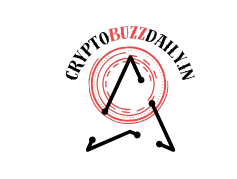Brokerage giant proposes unified rules for real-world asset tokenization to bridge TradFi and DeFi.
Robinhood has taken a bold step toward redefining asset trading in the United States by submitting a 42-page proposal to the U.S. Securities and Exchange Commission (SEC), seeking regulatory clarity for tokenized real-world assets (RWAs). According to Forbes (May 20), the proposal calls for a federal framework that would treat tokenized versions of traditional financial assets—like stocks, bonds, or real estate—as legally equivalent to their conventional forms.
Robinhood Lays Groundwork for Onchain Trading of Traditional Assets
The proposed Real World Asset Exchange (RRE) would integrate off-chain trade matching for efficiency with on-chain settlement for transparency and security. Robinhood has partnered with Jumio and Chainalysis for KYC and AML compliance, ensuring the platform aligns with global regulatory standards.
“This proposal could mark the first time a U.S.-regulated broker has laid out a viable path for bringing trillions of dollars in assets onchain—without compromising regulatory integrity,” said Mati Greenspan, founder of Quantum Economics. He added, “If the SEC embraces this, it’s a signal to the world that tokenization has a legitimate seat at the traditional finance table.”
So far, the SEC has not publicly commented on the proposal. However, legal experts believe Robinhood’s request could set important precedents for how U.S. regulators view tokenized equities and bonds—potentially influencing future rulings on taxation, investor protections, and trading infrastructure.
Tokenization Trend Goes Global
The proposal arrives amid a growing global race to integrate blockchain-based systems into traditional financial markets. Countries like Singapore and the United Kingdom have already launched controlled pilots involving tokenized funds and fixed-income products. These initiatives reflect a desire to improve speed, transparency, and compliance in capital markets without losing the legal safeguards of centralized oversight.
Robinhood’s long-term vision aligns with broader expectations: tokenized RWAs are forecasted to grow into a $30 trillion market by 2030. Advantages like 24/7 trading, instant settlement, programmable compliance, and lower transaction fees could transform everything from retail investing to institutional fund management.
While Robinhood’s RRE platform has no set launch timeline, the proposal’s influence may reach beyond U.S. borders if regulators adopt a standardized framework that other jurisdictions can follow.










